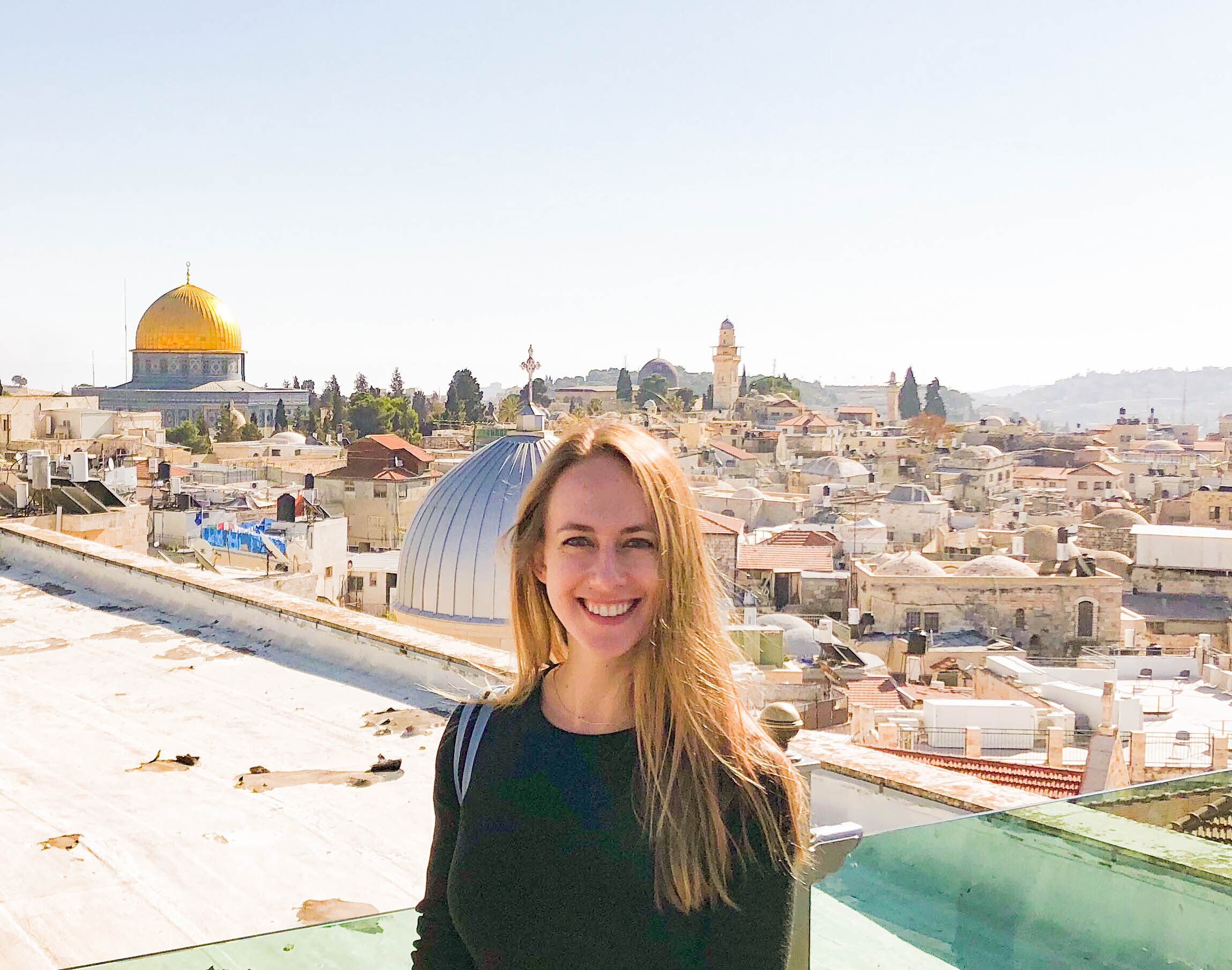Senior Ethicist Presents Ethics Lab Methodology in Jerusalem
Dr. Elizabeth Edenberg in Jerusalem. (Elizabeth Edenberg)
Dr. Elizabeth Edenberg, Senior Ethicist at Ethics Lab, recently participated in three workshops of the Data Co-ops Workshop series, created by Kobbi Nissim of Georgetown University and Katrina Ligett of The Hebrew University of Jerusalem. Two of the three workshops were funded by the Alfred P. Sloan Foundation.
The first two workshops were held at Georgetown University in June and October 2019, while the final of the series was held at The Hebrew University of Jerusalem on December 22, 2019.
“The idea of these three workshops was to bring interdisciplinary scholars together to examine ways to restore the power of individuals in the data economy, focusing on issues of privacy and accountability,” Dr. Edenberg said. The workshop brought together computer scientists, lawyers, economists, policymakers, and ethicists hailing from North and South America, Europe and Israel.
Participants spent the day discussing issues of privacy and security for individuals in the data economy. The workshop concluded with Edenberg leading a creative working session using Ethics Lab’s unique methods to focus on the ethics of various stakeholder perspectives in the larger data economy.
“In this working session I sought to bring together everything we’ve discussed in prior workshops and use that to think through what a data co-op might look like from a variety of stakeholder perspectives. How might they want their information to flow through the data economy? What privacy risks are salient to each actor? Which accountability structures might they want to protect their interests?” Dr. Edenberg said.
She added, “The point of going through this ethics-driven design sprint was to use ethics as a creative engine to help generate new ideas for research in this space.”
The workshop series was put together by Nissim and Ligett to examine how platforms obtain and use individual information, and whether developing data co-operatives could help individuals defend their interests, by forming a new layer in the digital ecosystem to leverage collective action.

